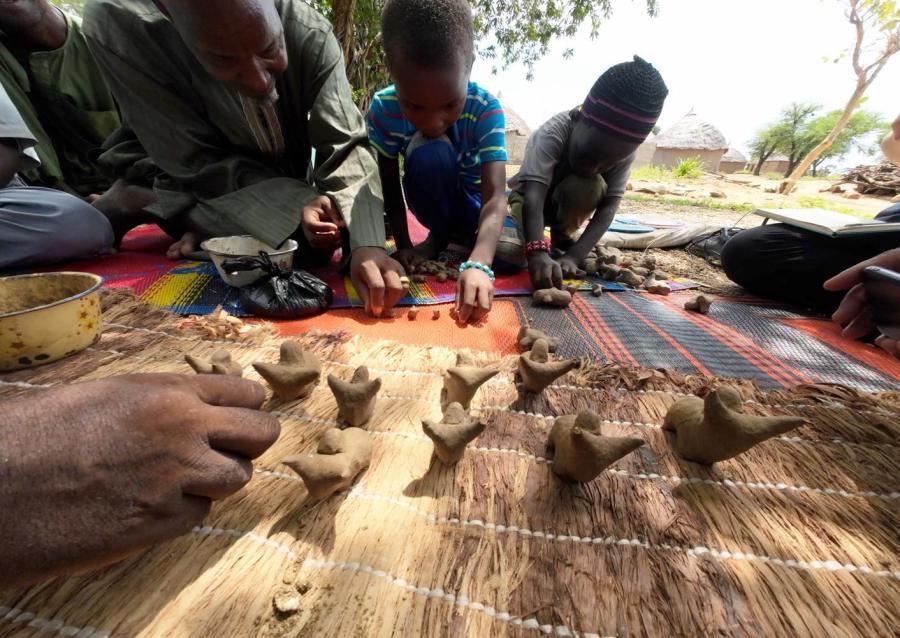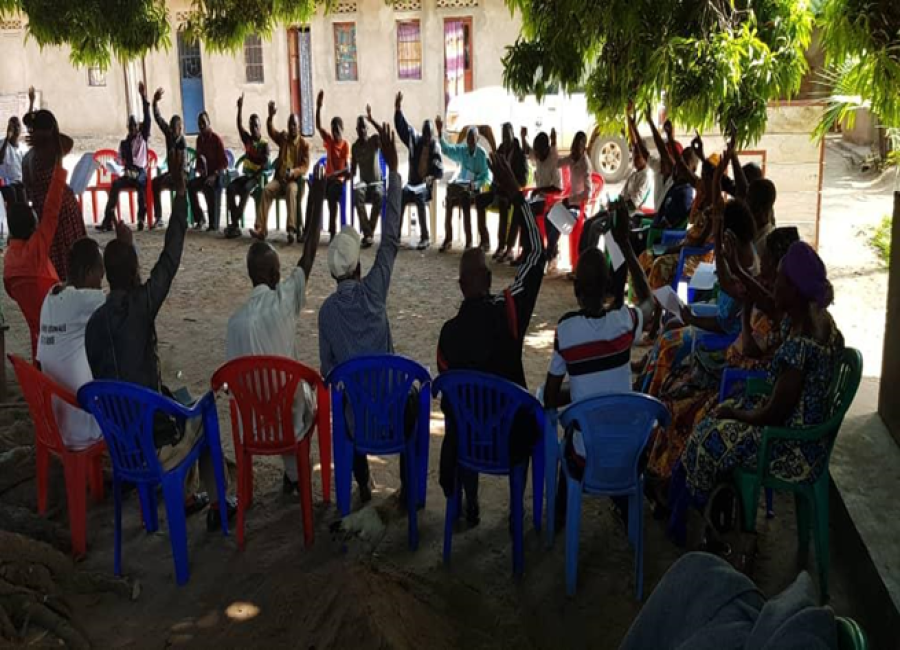In Kikongo, the language of the people of Kilanga, the word bängala has three meanings: most precious, most insufferable, or poisonwood. In the Congolese context, opposites are necessarily bound forever in definition; nothing can exist without its antithesis. The righteous and the heathen, the foreign and the familiar, devastation and redemption -- each half is a component of the whole, relevant only by comparison. The Price family, arriving in the Congo in 1959 to fulfill Reverend Nathan Price's evangelical mission, comes to understand that what they hold most dear can also be what they despise the most; the thing closest to their hearts can also be poison.
Through the voices of four sisters and their mother, the story of the Price family's tragic destruction is juxtaposed with the political disintegration of the Congo itself from a colonized territory to an autonomous democracy to a nation run by a CIA- installed dictator. As Nathan's attempts to save both himself and the Congolese "heathens" become all-consuming, the Price women struggle to find their own brand of freedom. Through the hardships suffered at the hands of Africa's powerful natural forces, politicians both in the village and around the world, and even those they hold closest to their hearts, each woman eventually finds her own way to liberation. Much like the Kikongo word bängala, "liberation" for the Price women has multiple -- and contradictory -- meanings. Whether through an outright rejection of the Congolese culture or a redefinition of "home," each ultimately regains the autonomy denied her in her forced relocation to Africa.
On one level, The Poisonwood Bible is the story of a family torn apart by the quest of a man driven by guilt to save those "unable to save themselves." On another, it is a commentary on how meaningless 1950s American views on race and gender become in a foreign context. On yet another, it is an account of the Western World's appalling history of interference in African political life, and a commentary on the role of religion in Western colonization. The section titles, each referencing a book of the Bible, point to the novel's underlying religious allegory of domination, destruction, and salvation.
Moving between the intensely personal telling of a family's downfall and the question of Western culpability could be disastrous in the hands of a lesser writer, but Kingsolver has utilized her masterful storytelling skills and her eye for detail to her advantage. Her descriptions -- of the weekly market, the mosquito-netted beds, the mouth of a green mamba snake -- are profound. The power of this novel lies not within the overarching themes of cultural difference and political brokerage, but rather in Kingsolver's descriptions of the small lives lived beneath the shadow of great change. A neighbor calls to her children from the yard, families quiz one another on the new pro-African names for all of the Congo's (Zaire's) cities, children play a transcultural "Mother, May I?" game -- in these moments, Kingsolver expertly captures the humanity behind the history.
Her decidedly Faulkener-esq approach, with each woman narrating in turn, is nearly successful. On occasion, Kingsolver is so intent on maintaining the unique voice of each woman that she allows the characterization to suffer; Rachel in particular is sometimes one-dimensional. Such momentary lapses are forgivable, however, in light of the well-developed and intelligent characterization throughout the novel. Kingsolver carries the Price family through 30 years of change, and each woman's careful, subtle transformation is flawless.
Kingsolver depicts the Congolese culture with a measure of respect not often seen in fictional novels written by foreign authors, and sets an important example for today's global community -- a world in which fluid borders and technological advances make intercultural exchanges inevitable. With The Poisonwood Bible, Kingsolver has created an intelligent and powerful story about the tensions between love and hate, destruction and redemption, nation and nation, man and woman, and nature and beast -- and the women who learn to understand and embrace these tensions.
Article copyright Cultural Survival, Inc.


